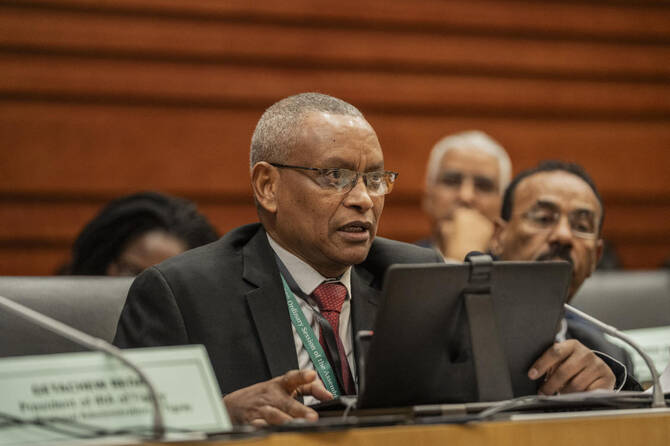
Ethiopia has accused neighbouring Eritrea of preparing to wage war in collusion with a hardline faction of the Tigray People’s Liberation Front (TPLF), escalating a simmering dispute over access to the Red Sea.
In a letter to UN Secretary-General António Guterres, Ethiopian Foreign Minister Gedion Timothewos alleged that Eritrea and TPLF hardliners are “funding, mobilizing and directing” armed groups inside Ethiopia’s Amhara region, where Fano militias have battled federal forces. The letter, circulating widely among Ethiopian government supporters, also claims Eritrea seeks to destabilise Ethiopia amid Addis Ababa’s push to regain sea access lost when Eritrea became independent in 1993. Eritrea has not commented.
The Amhara conflict has intensified since Fano, once allied with federal forces against the TPLF, rejected disarmament. Ethiopia’s privately owned Addis Standard reported the letter accuses Eritrea and TPLF hardliners of supporting a Fano assault on Woldiya in September, with TPLF commanders allegedly involved.
Relations between Prime Minister Abiy Ahmed and Eritrean President Isaias Afwerki, once buoyed by a 2018 thaw, have deteriorated since the 2022 Pretoria deal ended the Tigray war—an accord Eritrea did not sign. A TPLF faction led by Debretsion Gebremichael governs Tigray and accuses Addis Ababa of failing to fully implement the peace deal, while branding a rival TPLF camp as colluding with the federal government.
The Red Sea has become a flashpoint. On Monday, Ethiopian President Taye Atske Selassie told parliament the Red Sea and River Nile are “essential” to Ethiopia’s existence—remarks Eritrean Information Minister Yemane Gebremeskel dismissed as “crass,” calling Addis Ababa’s focus “bizarre.”
Ethiopia and Eritrea fought a border war from 1998 to 2000 that killed tens of thousands, chiefly over the town of Badme. Ethiopian officials warn that any proxy campaign against Addis Ababa could trigger a wider confrontation as the region grapples with overlapping conflicts and maritime tensions.
